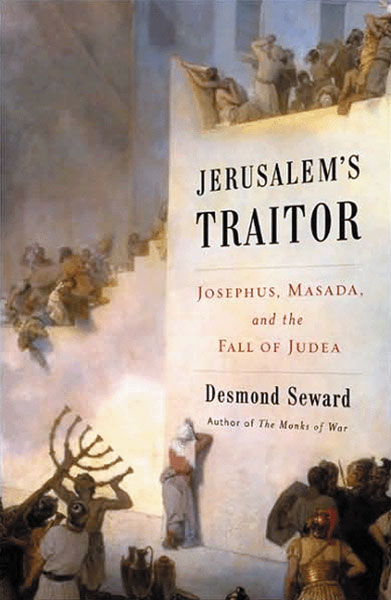
Josephus’s soul-stirring account of the Great Jewish Revolt against Rome (66–70 C.E.), titled The Jewish War, has recently been translated from Greek into Hebrew by Lisa Ullman. In a review in Haaretz, Hebrew University political scientist Shlomo Avineri recalls a mock trial in 1948 during Israel’s War of Independence in which Josephus was the defendant: Was Josephus a hero or a traitor? For many years such trials of Josephus were common in Israel. The unusual feature of the mock trial that Avineri recalls, however, is that there were two defendants: Josephus and Yohanan Ben Zakkai, the rabbinic leader who fled a besieged Jerusalem to the camp of the Roman Tenth Legion to ask the Roman commander Vespasian to spare Yavneh and its sages, a request that was granted.
Both defendants, however, were acquitted in the mock trial. Professor Avineri recalls that the argument that won the day was that the harm caused by their respective choices to cross the lines and to go to the enemy was not as bad as the good that they did for the Jewish people.
In Yohanan Ben Zakkai’s case, the survival of the rabbinic academy at Yavneh enabled the sages to create an alternative framework for Jewish identity after the Roman destruction of the Temple.
Josephus, too, defected to the Romans. He went to Rome and returned with Titus and the Roman forces to witness the destruction of Jerusalem and the Temple, after which, living in Rome, he wrote The Jewish War. Josephus’s arguments against the revolt were his effort to preserve the identity of the Jews as a nation. In his review, Avineri calls Josephus the first Zionist in the sense that Zionism is an expression of Jewish nationalism.
Already a library member? Log in here.
Institution user? Log in with your IP address.

